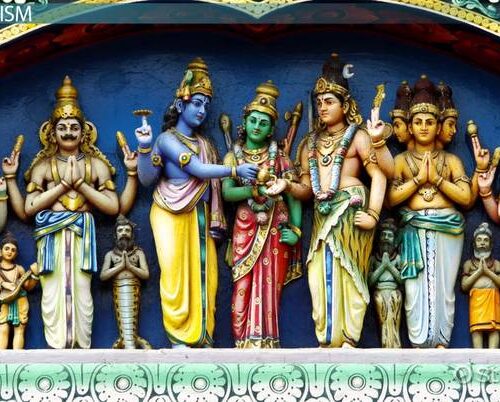At the intersection of religion and politics, monotheism presents a rich landscape to explore. The concept of a single, all-powerful deity has had a profound impact on the political trajectory of various societies throughout history. From ancient civilizations to modern nation-states, monotheistic beliefs have both shaped and been shaped by the political realms they inhabit. In this article, we will delve into the intricate relationship between monotheism and politics, examining the ways in which religious beliefs influence power dynamics and vice versa.
Monotheistic religions such as Judaism, Christianity, and Islam espouse a worldview where ultimate authority rests with a single divine entity. This theological foundation has significant implications for political systems. The belief in a God who governs all aspects of life naturally leads to questions about the legitimacy and limitations of human political authority. In this context, rulers often claim a divine mandate, positioning themselves as intermediaries between the divine and the earthly realms. This divine authorization grants political leaders immense power, but it also places a responsibility upon them to act in accordance with the divine will.
Throughout history, we have witnessed the complex interplay between religion and politics in the quest for power and control. Theocracies, where religious leaders hold political power, have emerged in various societies over time, intertwining religious precepts with political governance. In these systems, the lines between sacred and secular authority blur, as religious doctrines shape legislative processes and governance structures. Examples such as the ancient kingdom of Israel under King Solomon or the contemporary Islamic Republic of Iran highlight the potency of religious influence in shaping political institutions.
However, the relationship between monotheism and politics is not one-dimensional. While religious beliefs can serve as a source of moral guidance and foster a sense of community, they can also be manipulated for political gains. History is replete with instances where leaders have co-opted religious narratives to consolidate power, articulate nationalistic agendas, or justify violent actions. Religious language and symbols have been weaponized to marginalize minorities, justify discrimination, and perpetuate social hierarchies. Struggles for political power have often fueled religious conflict, perpetuating divisions and animosities between different religious communities.
Moreover, the influence of monotheism on politics extends beyond the governance of states. It encompasses social movements, policy decisions, and public debates on moral issues. Religious beliefs shape the values, aspirations, and ethical frameworks of individuals, influencing their political inclinations and voting patterns. From contentious debates on reproductive rights to discussions on the death penalty, religious perspectives play a pivotal role in shaping the political landscape.
In conclusion, the intertwining of monotheistic beliefs and politics is a complex and multifaceted phenomenon. Monotheism provides a moral compass, a source of authority, and a framework for understanding the world, which inherently spills over into the political realm. While religious beliefs can inspire individuals to work towards justice, compassion, and equality, they can also be distorted to justify oppressive systems or fuel sectarian conflicts. Recognizing the varied and intricate ways in which monotheism and politics intersect is crucial for fostering informed and enlightened discussions. By exploring these untapped viewpoints, we can foster a deeper understanding and appreciation of the complex dynamics at play and pave the way for a more inclusive and compassionate political discourse.
